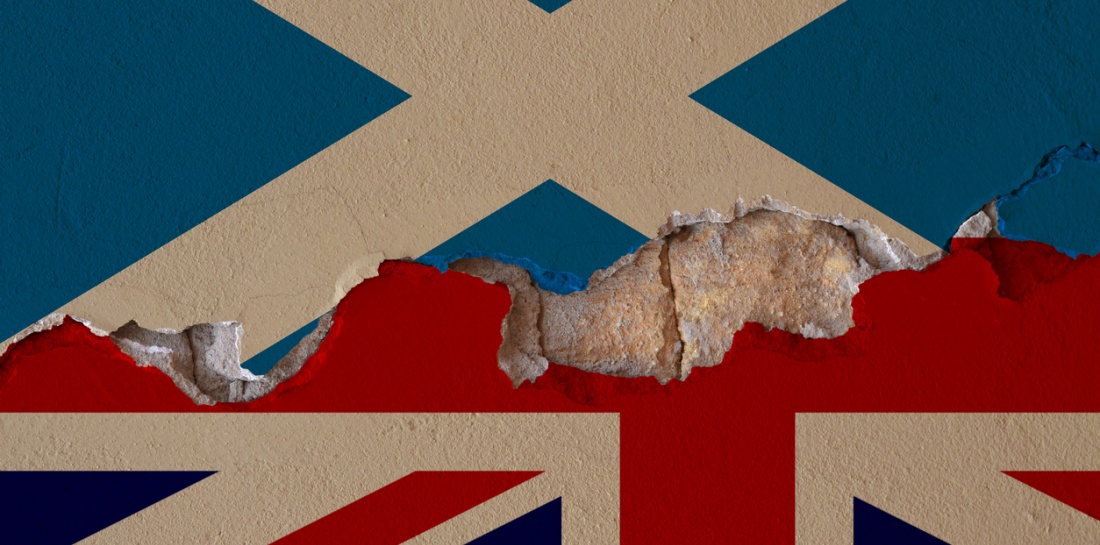Three and a half years on from the “once in a generation” vote on independence, Scotland finds itself yet again on the edge of another precipice.
The SNP government appear determined to force the country through yet another very divisive second referendum campaign. This volte-face has apparently been caused by the United Kingdom’s decision to leave the European Union. The Prime Minister has been steadfast in her refusal to accede to the First Minister’s demands to be allowed to hold a second referendum, at least until the country knows the outcome of the Brexit negotiations.
During this period of uncertainty, the most important question must surely be – can it really be business as usual? The short answer is no. Chief Executives of publicly-quoted companies tell me every week that independence would be incredibly harmful to the country’s prospects. Why would companies, faced with a choice, invest any new capital in Scotland whilst there are still so many unknowns?
Obvious reservations include: Can we afford independence? Would Scotland automatically be allowed to join the European Union? What currency would we use? What are the likely implications on our taxation system?
Before looking at these points in more detail, it is interesting to note the mood amongst Scottish small and medium sized enterprises. A recent survey of 770 SMEs, conducted by accountants French Duncan, showed 89% were against holding another referendum, while 86% would vote against it. 90% of respondents believed the financial case had weakened and 86% thought an independent Scotland would grow more slowly than the rest of the United Kingdom. Significantly, on the subject of taxation, 93% believed taxes would increase in an independent Scotland.
According to most unbiased reports, it is highly improbable the country can afford independence. At present, Scotland’s deficit is the worst in the OECD at 9.4% of national income. Oil revenue, often cited by those supporting separation as a reason why Scotland could prosper, fell 97% last year to just £60m from £1.8bn. It is, at best, ingenuous to rely on a single commodity where you have no control over price.
The rating agency Moody’s has recently warned that Scotland’s credit status could be downgraded to ‘junk’ if it goes it alone, placing it on a par with countries such as Azerbaijan and Guatemala. Amongst other implications, this would mean those lending to us would demand a higher interest rate.
Scotland would not automatically be allowed to join the European Union despite repeated protestations from Nicola Sturgeon. It is more than likely that Scotland would have to meet the standard terms for EU entry, including deficit reduction to 3% of GDP, thus requiring a period of severe austerity. Public spending would have to be slashed, with substantial tax rises, both on a personal and corporate level, inevitable.
Brussels would demand the adoption of the Euro, something the Scottish government has yet to confirm. Interest rates would, therefore, be dictated by the European Central Bank which attempts to set a ‘one size fits all policy’. As a country, we would have no control over our monetary policy.
The adoption of the Euro would be damaging to businesses in Scotland given it is estimated we export almost four times as much to the rest of the United Kingdom as we do to the rest of Europe. Adopting a flawed currency, and one which your closest and most important trading partner does not use, is utterly nonsensical and would add to the burden of businesses north of the border.
The United Kingdom’s impending withdrawal from the European Union will present companies, both large and small, opportunities and challenges in the years ahead. It is imperative businesses, whilst navigating these unchartered waters, do not have yet more uncertainty thrust upon them.
The First Minister has already changed her rhetoric from demanding “the will of the Scottish people must be respected” to “the will of the Scottish parliament”. If Mrs Sturgeon would care to open her eyes, she may well see businesses up and down the country do not share her lust for independence.
This article first appeared in The Herald.
Craig Yeaman is an investment director at Saracen Fund Managers and Manager of Saracen UK Alpha Fund. Views expressed here are his own.
Click HERE for more information on Saracen Fund Managers.



